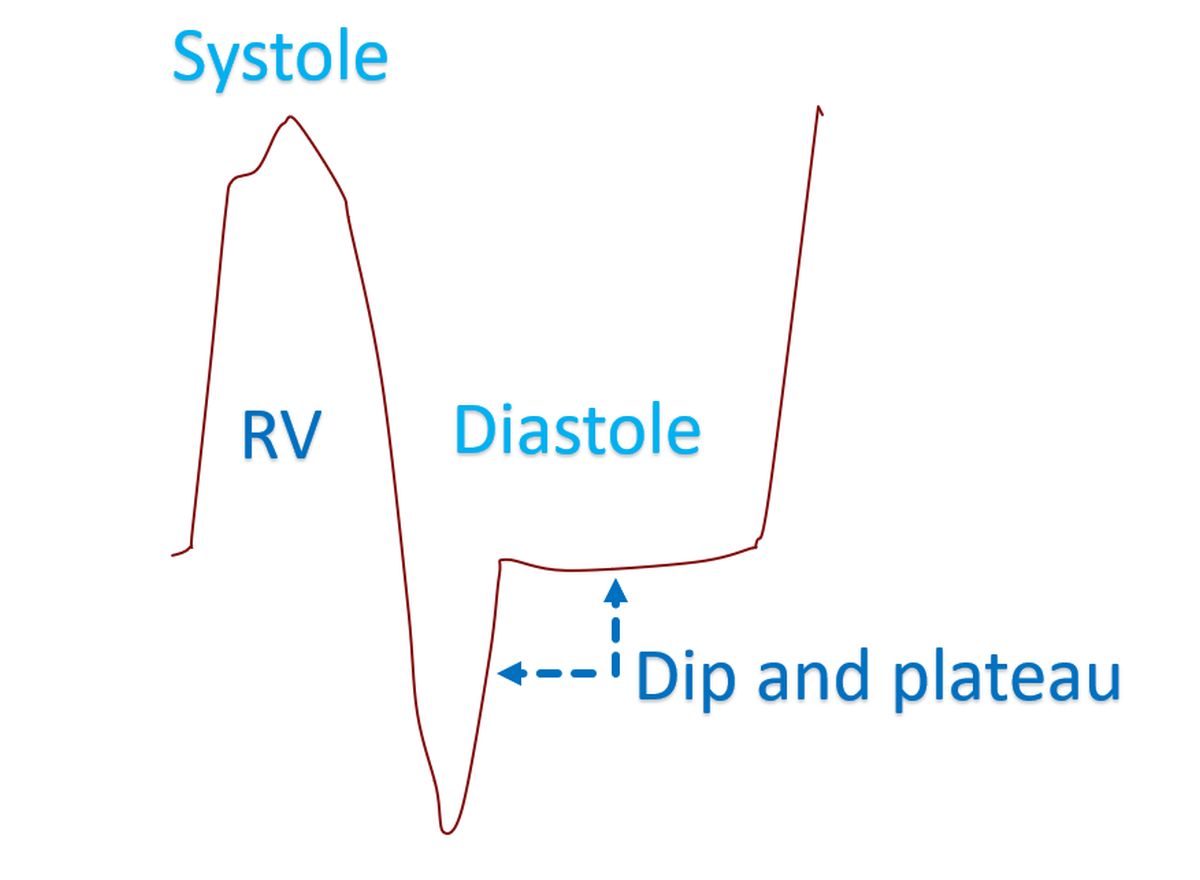Dip and plateau pattern of ventricular pressure tracing in constrictive pericarditis
Dip and plateau pattern of ventricular pressure tracing in constrictive pericarditis
Thickened and stiff pericardium in chronic constrictive pericarditis has poor compliance reducing the distension of cardiac chambers to a limited fixed total volume. Transmission of intrathoracic pressure to the pericardial cavity is also prevented by thickening of the pericardium [1]. Manifestation of compression occurs when the total cardiac volume reaches the pericardial volume in diastole. The severe restriction causes elevation of pulmonary and systemic venous pressure which becomes equal to diastolic pressures in all cardiac chambers. Relative change is more on the right sided chambers. Inspiratory fall in intrathoracic pressure is transmitted to the pulmonary veins, but not to the pericardial cavity. This decreases left ventricular filling and consequent increase in right ventricular filling by septal shift towards the left ventricle.
In chronic constrictive pericarditis, the early diastolic filling of the ventricles is not restricted as the total cardiac volume is low after systolic emptying. Abnormally rapid early diastolic filling of the ventricles cause a rapid dip in the ventricular pressure tracing. Rapid filling of the ventricles is abrupted halted by the thickened pericardium when it reaches the limit of fixed total cardiac volume. This causes elevation of diastolic pressure which plateaus off. Abrupt early diastolic dip and further rise and plateauing of in mid to late diastole has been called as the ‘dip and plateau sign’. It is also known as ‘square root sign’, due to the similarity with the latter. It is mentioned that square root sign can also occur in right right ventricular cardiomyopathy and severe bradycardia [1].

Reference
- Doshi S, Ramakrishnan S, Gupta SK. Invasive hemodynamics of constrictive pericarditis. Indian Heart J. 2015 Mar-Apr;67(2):175-82. doi: 10.1016/j.ihj.2015.04.011. Epub 2015 May 13. PMID: 26071303; PMCID: PMC4475854.


